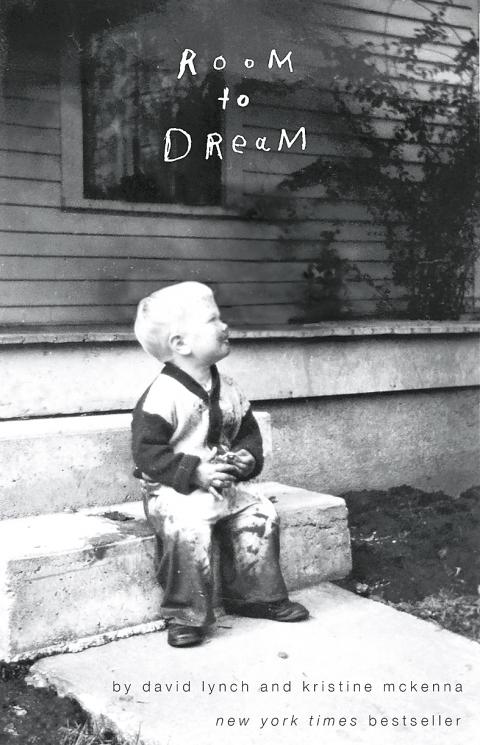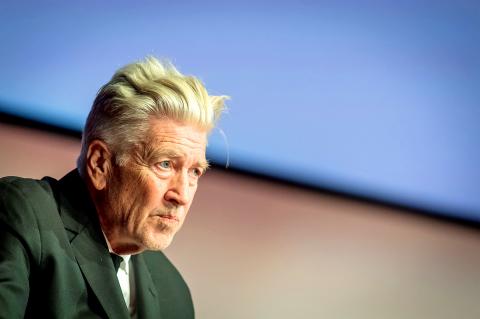The simplest avenue for beginning to understand filmmaker David Lynch might be found in a childhood friend’s observation: “David’s always had a cheerful disposition and sunny personality, but he’s always been attracted to dark things. That’s one of the mysteries of David.”
Dark things abound in Lynch’s signature films — the grotesque infant in Eraserhead (1977), the disfigured adult in The Elephant Man (1980), the violent and perverse Frank Booth in Blue Velvet (1986) — and in his first TV series, the offbeat murder mystery Twin Peaks (1990-91). When his cheerful and sunny side shows itself, and that’s not often, the result is The Straight Story (1999).
Like a David Lynch film, the biography-memoir Room to Dream is set in a world we recognize but one with a dreamy, compelling perspective at its core. Co-author and Lynch friend Kristine McKenna writes from interviews and other research in one chapter while the filmmaker’s own recollections of events follow in the next. It’s a unique structure that’s perfectly suited for a cheery fellow with dark fantasies.

Lynch has always been drawn to art of some sort — paint, film, video, music, sound design, photography, acting, even carpentry. Friends and colleagues say he is smart, nice, generous and outgoing — and insist that he isn’t weird. Well, how would you describe someone who dissects a mackerel, lays out the parts, labels them for reassembly, then photographs the display and calls it a Fish Kit? Oh, and a Chicken Kit and a Duck Kit follow.
Curiously, Lynch’s life lacks the elements of evil and tragedy and the bizarre found in his art. McKenna describes an all-American 1950s boyhood in the Northwest. Taking his turn, Lynch recalls an idyllic youth, too, but one with the occasional disturbing image — like the night a nude and beaten woman stumbled down his street. (If you’ve seen Blue Velvet you’ll recognize that childhood memory.)
At one point Lynch writes: “Almost everybody has a bunch of stuff swimming in them, and I don’t think most people are aware of the dark parts of themselves. People trick themselves and we all think we’re pretty much OK and that others are at fault.”

Photo: EPA
McKenna doesn’t omit unflattering details — Lynch’s extramarital flings, for example, and the crumbling of the first three of his four marriages. Actress Isabella Rossellini describes how Lynch used a phone call to end their years-long relationship, a subject on which Lynch contributes only silence.
Importantly for cinephiles Room to Dream explores such things as how Mulholland Drive (2001) rose from the ashes of a failed TV project to the cult film that the Web site BBC Culture declared to be the best movie of the 21st century. That backstory and so many others provide a window into the mysteries of creativity.
Lynch once told director Steven Spielberg, “You’re so lucky because the things you love millions of people love, and the things I love thousands of people love.” Yet Lynch thrives as an artist and as a human being because he fuels his passions with curiosity, discovery and a sense of fun.

May 18 to May 24 Pastor Yang Hsu’s (楊煦) congregation was shocked upon seeing the land he chose to build his orphanage. It was surrounded by mountains on three sides, and the only way to access it was to cross a river by foot. The soil was poor due to runoff, and large rocks strewn across the plot prevented much from growing. In addition, there was no running water or electricity. But it was all Yang could afford. He and his Indigenous Atayal wife Lin Feng-ying (林鳳英) had already been caring for 24 orphans in their home, and they were in

On May 2, Chinese Nationalist Party (KMT) Chairman Eric Chu (朱立倫), at a meeting in support of Taipei city councilors at party headquarters, compared President William Lai (賴清德) to Hitler. Chu claimed that unlike any other democracy worldwide in history, no other leader was rooting out opposing parties like Lai and the Democratic Progressive Party (DPP). That his statements are wildly inaccurate was not the point. It was a rallying cry, not a history lesson. This was intentional to provoke the international diplomatic community into a response, which was promptly provided. Both the German and Israeli offices issued statements on Facebook

Even by the standards of Ukraine’s International Legion, which comprises volunteers from over 55 countries, Han has an unusual backstory. Born in Taichung, he grew up in Costa Rica — then one of Taiwan’s diplomatic allies — where a relative worked for the embassy. After attending an American international high school in San Jose, Costa Rica’s capital, Han — who prefers to use only his given name for OPSEC (operations security) reasons — moved to the US in his teens. He attended Penn State University before returning to Taiwan to work in the semiconductor industry in Kaohsiung, where he

President William Lai (賴清德) yesterday delivered an address marking the first anniversary of his presidency. In the speech, Lai affirmed Taiwan’s global role in technology, trade and security. He announced economic and national security initiatives, and emphasized democratic values and cross-party cooperation. The following is the full text of his speech: Yesterday, outside of Beida Elementary School in New Taipei City’s Sanxia District (三峽), there was a major traffic accident that, sadly, claimed several lives and resulted in multiple injuries. The Executive Yuan immediately formed a task force, and last night I personally visited the victims in hospital. Central government agencies and the